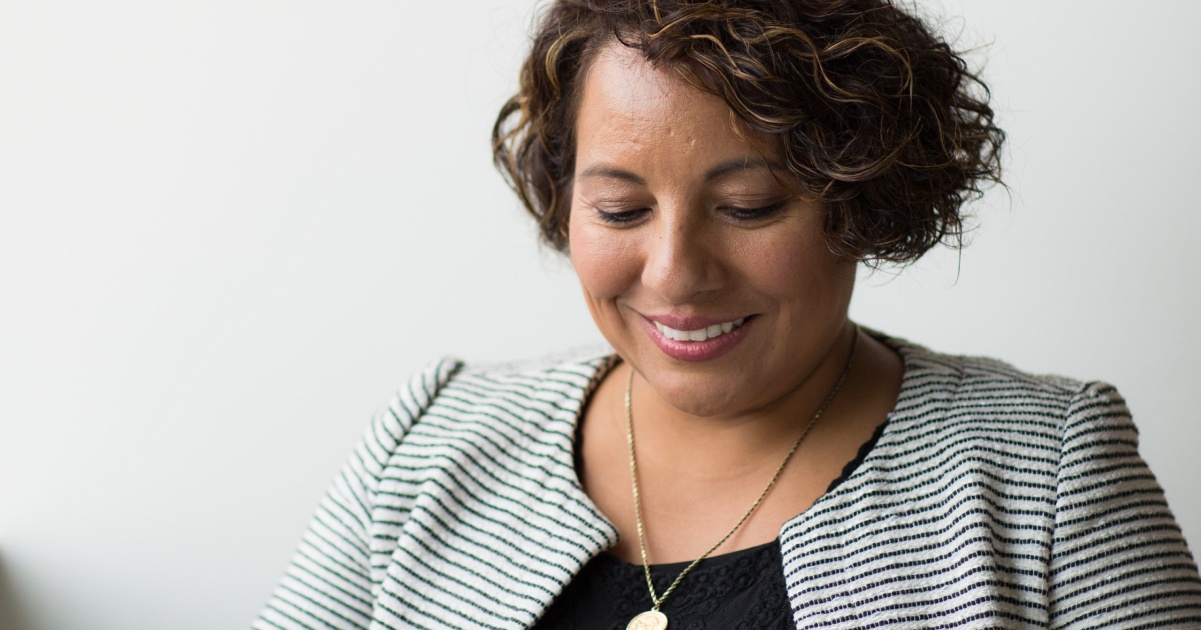
How to Start a New Career at 50 (and Beyond)
Starting a new career can seem like an intimidating challenge, especially if you’re 50 or above. But in reality, the skills and experiences you’ve accumulated over the years can be valuable stepping stones toward a fulfilling new career.
And if you did choose to start a new career, you wouldn’t be alone. A survey released by the American Association of Retired Persons (AARP) found that 24% of workers aged 50 plus are planning to make a job change this year. Lots of people are embracing the idea that it’s never too late to explore different career paths.
In this blog post, we’ll take a closer look at some of the advantages of starting a new career at 50 (and beyond). Then, we’ll highlight 10 intriguing career change options for you to consider.
Why Start a New Career at 50?
For many over 50s, changing careers is a daunting prospect. After all, you may have spent much of your life in the same line of work or been out of the job market for a while. But shifting to a new career can come with many benefits, whether you’re making a change at 25, 50, or beyond.
Of the 3,580 US adults interviewed by the AARP, 40% were looking for a new job, 16% were planning to start their own business, and 12% were hoping to shift from full- to part-time work. Whatever your motivations, starting a new career at 50 can allow you to:
- Achieve greater financial stability
- Pursue your interests and passions
- Try a career you’ve always wanted to do but circumstances prevented you from pursuing
- Gain better job satisfaction
- Learn about and experience something new
Starting a new career has even been linked to health benefits, such as reduced stress levels, improved sleep, and a sharper mind, all of which are increasingly important later in life.
How to Start a New Career at 50
Now you know the benefits of an encore career, let’s get into how you can get started with yours.
1. Consider Your Goals
Identifying your reasons for changing career can help you narrow down your options when it comes to potential jobs. Ask yourself:
What Do I Hope to Gain from a New Career?
When considering what you hope to gain from a new career, it’s important to reflect on your personal goals and motivations.
For example, if achieving a better work-life balance is important to you, you might want to prioritize work that has flexible hours, such as freelancing. For some inspiration, take a look at our post 13 Flexible Jobs Where You Choose Your Own Hours.
If you’re craving a new challenge or a greater sense of purpose, your encore career could be the time to explore an industry that you’ve always been interested in but never had time for – sports writing or counseling, for example.
If you are eager to pursue a passion and can afford to take early retirement but would like an income boost, you could turn a hobby into a career. In an earlier post, we considered a selection of retirement hobbies that could make you money.
What Are My Nonnegotiables?
When planning your career change, it’s helpful to make a list of the things your new career must have. For instance, flexible hours, the ability to work remotely or while traveling, or an opportunity to learn new skills.
Make a separate list of absolute deal-breakers – a lengthy commute, weekend working, or unsociable hours, for example – so that you can filter those out of your search.
What Are My Past Experiences?
In a similar way to your nonnegotiables, make a note of the things you enjoyed about your previous jobs and those that you didn’t. Use those past experiences to refine your goals, and also use them to get a head start when identifying the skills you can bring to a new career (which we’ll come to).
2. Research Your Options
Now you’ve identified some potential career options, it’s time to research them. You could try:
- Taking part in professional career counseling, such as with the National Careers Service in the UK or BACK TO WORK 50+ in the US
- Attending networking events in the industry you’re interested in (e.g., if you’re interested in publishing, you could attend a book fair)
- Taking online career quizzes, such as this one on Midlife Unstuck
- Searching job listings on specialist sites, such as Rest Less, that hire for age-diverse employers
- Signing up for freelance marketplaces such as Upwork, Fiverr, and Freelancer
As you research each potential career, make a note of key details that can help guide your decision-making process. Look into the average yearly income (you can find this information reliably on sites such as Indeed and the U.S. Bureau of Labor Statistics). Assess the availability of flexible work options, such as part-time roles, remote work, or jobs with adjustable hours.
Check if there are opportunities for new starters, like on-the-job training, and be mindful of any required qualifications, skills, or experience. Remember to compare these with the past experiences you identified earlier and the skills you’ll be exploring in the next step.
3. Assess and Improve Your Skills
A lifetime in employment will have provided you with qualifications and a variety of transferable skills (those that you can apply to a number of different careers), which can be broken down into hard and soft skills.
Hard skills are job-specific abilities, such as coding in Python, using particular bookkeeping software, or knowing specialized legal or medical terminology.
Soft skills are the qualities that are more easily transferred to widely differing careers, such as skills related to communication, adaptability, resilience, teamwork, and leadership.
To assess your skills, you can take these steps:
- Write out a list of all your hard and soft skills and qualifications. A spreadsheet or a simple Word document will help you to organize these neatly.
- Remember what we said at step one about things you’ve enjoyed in your current and past jobs. Add those to the relevant list.
- Look back at any previous performance reviews to jog your memory about how you and others rated your skills.
- Pay particular attention to your competency with any tech tools in wide use (e.g., Microsoft 365, Google Workspace, and project management tools such as Airtable) or tools essential for your target industry. However, remember that these can quickly become out of date with the speed at which new software and hardware are introduced.
- Rate your comfort level with each of the tech tools you’ve listed, maybe on a scale of 1–5, to see which ones you need to focus on to improve your skills.
- If you’re making a career change to a brand-new industry, list any brand-new skills you’ll need to develop. The research you carried out in step two will typically highlight the skills or qualifications required.
You can develop these skills by undergoing professional training, such as pursuing a mentorship or taking an online course. The professional body associated with your chosen career will be a good starting point when looking for training (e.g., the Photographic Society of America if you’re following a passion for photography).
4. Evaluate Your Financial Readiness
Following a passion or having more time with your family is a great aim, but those goals need to be weighed against the potential impact on your finances:
- Would your new career involve a pay cut? The research you did into likely income at step two will give you some insight into this.
- What might it cost you to retrain? When you looked into the necessary skills in step three, you would have gained some information about this.
- Will you need to invest in equipment or software? Again, you will have discovered this in the research you carried out in steps two and three.
While you’re researching each career, it’s also worth looking into how your pension or other age-related benefits may be affected by any new work you take on. Once you’ve considered the potential financial impact, it’s then a case of assessing your needs and achieving the necessary balance.
If you need a stable paycheck, then you may need to focus your search for a new career on in-demand, steady positions. If, however, you have sufficient savings or other income, you might prioritize pursuing your passion over the money a different position could earn.
5. Consider Any Age-Related Barriers and How to Overcome Them
However wrong it may be, age can be perceived as a barrier to starting a new career. But old dogs can learn new tricks – and with age comes experience. With that in mind, be ready to:
- Emphasize the transferrable skills you already have
- Keep up to date with the trends and technologies in your chosen industry
- Use the latest technology to connect with businesses and potential clients to demonstrate your familiarity and ease of use with the tech (to show some freelance skills, for example, you could set up and maintain your own website and social media accounts)
Alternatively, why not use your age to your advantage? Some customers may prefer to deal with people of a similar age. If you’re setting up on your own, those people could be your target audience, and your age could be your USP. You’ll see later on that there are careers where your age and experience are an asset.
6. Gain Experience Before Committing Yourself
If you’re in that bracket of people who don’t have the comfort of a financial cushion to allow you to pursue a new career, or you simply don’t know if it’s the right fit, you could do the career equivalent of “try before you buy.”
Volunteering will give you a good idea of what is actually involved and help you gain relevant experience and skills. You’ll also accumulate some useful contacts that could lead to a paid job.
Starting the job as a side hustle is another option. It will provide the same benefits as volunteering – but with the bonus of getting paid.
7. Rebrand Your Professional Identity
Changing careers means adapting to a new world of work – in more ways than one. To prepare for this transition and improve your chances of finding work, start by updating your resume. Focus on highlighting relevant skills and experiences and removing outdated or less relevant ones. Choose the right format: Skills-based resumes emphasize your abilities, while chronological ones highlight career length. And avoid a one-size-fits-all approach – tailoring your resume for each role helps employers see how you fit their needs.
Next, start networking with industry professionals. If you haven’t done so already, attend networking events or join online social groups to make valuable connections. Engaging with people in your chosen field can open doors, provide insights, and even lead to job opportunities.
It’s also crucial to establish or adjust your professional online profiles, such as LinkedIn. Make sure your headline and summary are up to date, and add keywords relevant to your new career. Regularly engage with content by commenting on posts and sharing your own thoughts and articles. This not only demonstrates your interest but also helps build visibility in your network.
If your new career path leans toward freelancing, contract work, or creative industries, consider building your own website or portfolio. This provides a platform to showcase your skills and share examples of your work. It also makes it easy for potential clients or employers to understand what you offer.
8. Break Your Goal into Smaller Milestones
Readjusting to a new career path and re-entering the job market later in life can take some getting used to. But as long as you take time to properly plan your steps, you’ll be able to enjoy a successful career change at 50 and beyond. Use our steps to break the process into manageable chunks and enjoy the achievement of checking them off as you go.
10 Career Ideas for Over 50s
If you’re stuck at step one, here are some potential career choices to inspire you:
1. Freelance Proofreader or Editor
As a proofreader or an editor, you’ll review written content to correct errors in grammar, spelling, and punctuation. You’ll also deal with formatting issues and ensure the text is clear and consistent. These roles would be ideal if you have a keen eye for detail and have strong language and IT skills. They are also suitable for remote working and offer great flexibility.
As a freelancer, it’ll be up to you to set your own rates. How much you earn will depend on your area of work, your experience, and how much time you have available. Professional bodies, such as the Editorial Freelancers Association and the Chartered Institute of Editing and Proofreading, publish guideline rates. Indeed gives the average base salary for a proofreader in the States as $53,995.
Take a look at our previous blog post How to Become a Proofreader for a comprehensive guide to getting started.
2. Freelance Content Writer or Copywriter
Content writers and copywriters create engaging and persuasive written material for various platforms, including websites, blogs, advertisements, and social media. This career would make use of your writing skills and allow you to express your creative side. Content writers and copywriters are in demand across different industries, offering diverse opportunities.
The same freelance considerations will apply as we mentioned above in terms of setting your own rates. The figures currently available from Salary.com suggest that freelance copywriters in the US could earn between $48,163 and $77,083 a year.
To learn more about launching a freelance writing career, check out our post How to Become a Freelance Writer.
3. Virtual Personal Assistant
Virtual assistants provide remote administrative support to businesses and entrepreneurs. They handle tasks such as email management, scheduling, data entry, and customer service. This role would make use of your transferable organizational and communication skills and would offer flexible working hours and the ability to work from home.
Indeed gives the average earnings for a virtual assistant in the United States as $28 per hour, although the amount you could earn will depend on your experience and the complexity of tasks.
Sound like a good fit for your strengths? This guide from Pitman Training explains exactly how to become a virtual assistant.
4. Online Tutor or Instructor
Online tutors provide support or teach specific skills to students through digital platforms, covering a wide range of subjects, both academic and occupational. If you have expertise in a particular subject, this role allows you to share knowledge and help others, with the convenience of remote work.
How much you’ll earn will vary depending on subject area, geographical location, and individual qualifications. The annual salaries for tutors at Tutor.com are currently given as ranging from $52,335 to $75,266.
For more advice on becoming an online tutor, we’d recommend Preply’s A step-by-step guide to starting online tutoring.
5. Bookkeeper or Accountant
Bookkeepers and accountants manage financial records, prepare reports, and ensure compliance with financial regulations for businesses and individuals. This role is suitable if you have a background in finance or have strong numerical skills. It’s a career that can offer stability through high demand (think of all those looking at new freelance careers who dread the prospect of dealing with their own taxes) and the potential for remote work.
Accountants in the US earn an average salary of $66,234.
Accounting.com’s article How to Become a Certified Public Accountant explores the steps you need to take to qualify for this role.
6. Career or Life Coach
Career and life coaches assist clients in setting and achieving personal or professional goals, providing guidance, support, and accountability. If you have strong interpersonal skills and a desire to help others, coaching can be a fulfilling and flexible career. And it’s one where your age – and therefore life and work experience – could be an advantage.
A life skills coach in the US can earn between $33,604 and $45,000 per year, depending on specialization and experience.
Curious? Have a look at Response’s guide How to become a life coach in 7 steps.
7. Photographer
Photographers capture images for a variety of purposes – for portraits, events, products, or journalism, or to show nature. This career can therefore be artistic, commercial, or a blend of both, depending on your interests. This would be great if you’re looking to develop an existing hobby into a career with flexible work arrangements.
The U.S. Bureau of Labor Statistics gives the average hourly rate for a photographer as $26.76, although the amount you could earn will vary depending on your niche, customer base, and experience.
This article 5 Steps to Become a Professional Photographer has lots of information on building a career in the photography industry.
8. Handyman or Home Repair Specialist
Handymen and handywomen perform a variety of maintenance and repair tasks in residential or commercial settings, including plumbing work, carpentry, and electrical work. If you have practical skills and enjoy hands-on work, this role offers independence and the satisfaction of solving problems.
Earnings will vary depending on the extent and complexity of the service you offer, as well as your location. Have a play around with the drop-down lists on TaskRabbit for an illustration of this. The median hourly rate for a handyman in the US is given as $23.44.
For more on getting started in this practical career, check out Jobbers’ article How to Become a Handyman: Your Complete Guide.
9. Pet Sitter or Dog Walker
Pet sitters and dog walkers care for animals while their owners are away. They provide companionship (for both human and animal), feeding, and exercise (again, for human and animal alike!). Perfect for animal lovers, this is also a role that offers flexible hours and the opportunity to work outdoors and meet other people. And if you’d love a pet but can’t have one of your own, this could be the ideal solution.
Dog walkers in the US can earn between $13.17 and $32.98 per hour.
Ready to meet some new furry friends? Here’s how to get started as a pet sitter or dog walker: The Five Common Paths To Becoming A Dog Walker or Pet Sitter.
10. Gardener
Gardeners design, plant, and maintain outdoor spaces, including lawns, gardens, and patios. This career will suit you if you enjoy physical work, being outdoors, and want to turn your passion for gardening into a career. You might really love the weeding that others hate or don’t have time to do. Or maybe you love garden design but don’t have one of your own.
Gardeners in the US can earn $18.93 per hour on average, with the potential for higher earnings through specialized services.
Learn how gardening could become a source of income with this guide from Airtasker: How to become a professional gardener.
Start a New Career with Knowadays
Whether you’d like to start a brand-new career or fill a particular skills gap, Knowadays is here to help. We’ve got a variety of comprehensive online courses – from proofreading, editing, and freelance writing, to AI prompting, formatting in Microsoft Word, and more.
And if the financial evaluation you carried out at step four led you to the conclusion that you’d prefer to “try before you buy,” you can try a couple of lessons from any of our courses for free!





Your email address will not be published.